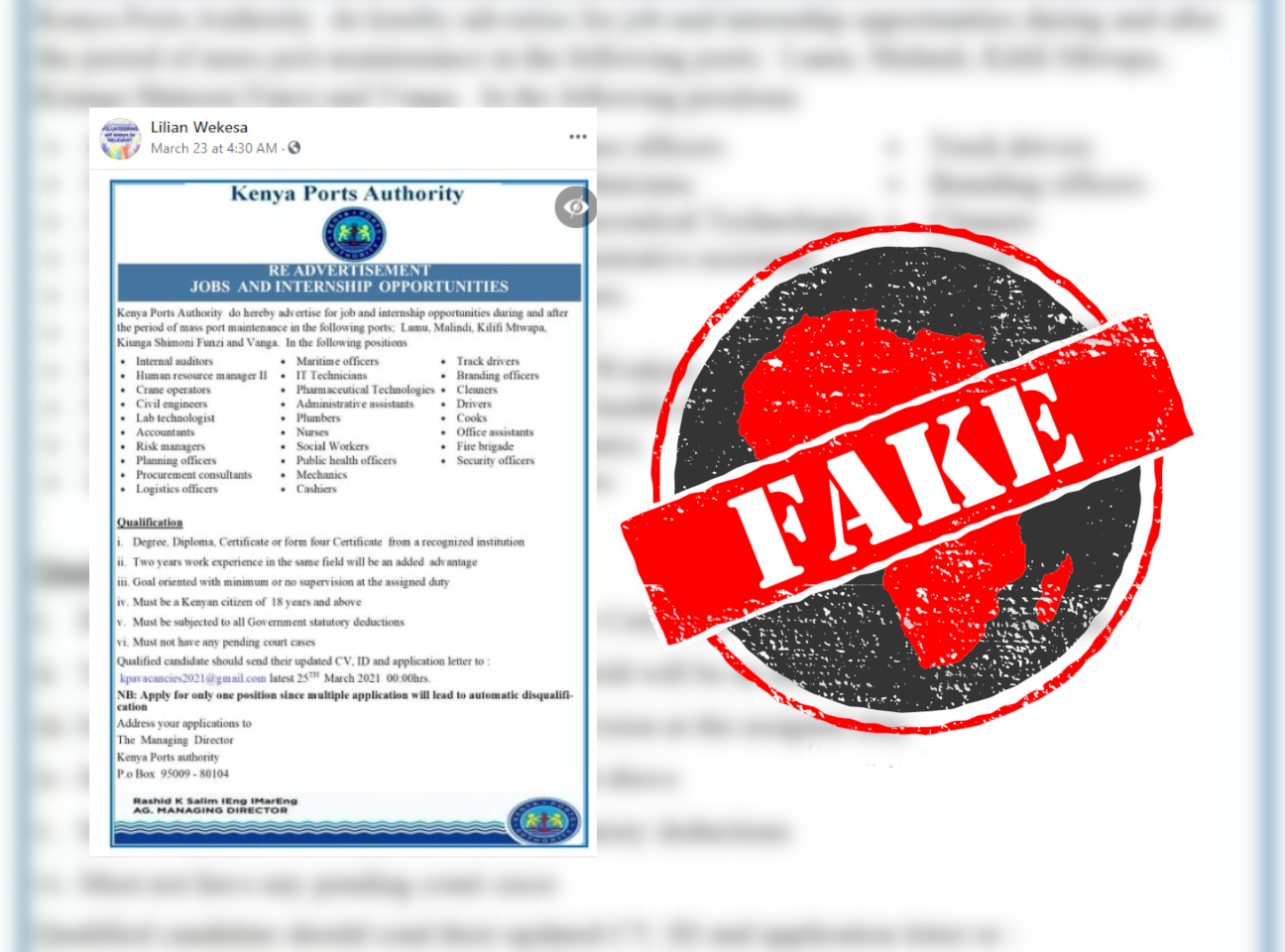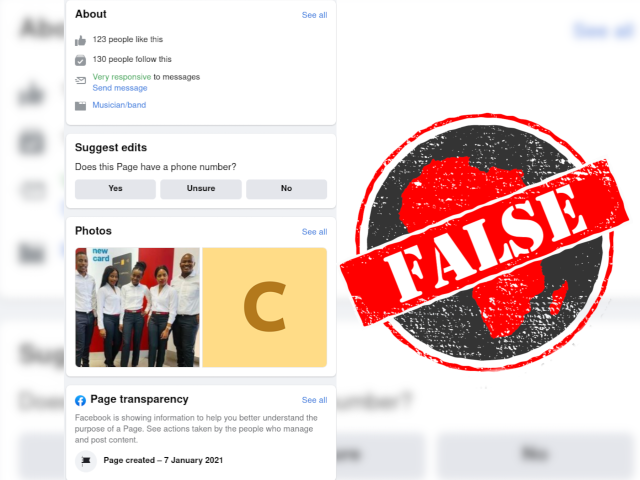A Kenya-based Facebook page, named “Lilian Wekesa”, frequently posts fake job offers on its timeline and on other Facebook groups to scam users.
In March 2021 alone, the account posted several adverts on Facebook groups that together had more than 1 million members.
It’s been doing this for months.

Organisations warn against scam ads
In January, for instance, the account posted an ad claiming the Kenya Defence Forces was recruiting soldiers. The KDF issued a warning that the ad was fake.
In February, it advertised jobs at World Vision Kenya. This organisation also warned that the job offers were fake.
In March, “Lilian Wekesa” posted an ad for jobs at the Public Service Commission. It included a real email address. But in the commission’s legitimate job ads, it directs candidates to apply online via its website or jobs portal – not by email.
“Lilian Wekesa” only posts fake job ads. The account shows no other activity that might be expected from an ordinary Facebook account. And several of the ads on the page have already been debunked by fact-checkers.
For more information, read our detailed guide on how to spot scams on Facebook.
Republish our content for free
For publishers: what to do if your post is rated false
A fact-checker has rated your Facebook or Instagram post as “false”, “altered”, “partly false” or “missing context”. This could have serious consequences. What do you do?
Click on our guide for the steps you should follow.
Publishers guideAfrica Check teams up with Facebook
Africa Check is a partner in Meta's third-party fact-checking programme to help stop the spread of false information on social media.
The content we rate as “false” will be downgraded on Facebook and Instagram. This means fewer people will see it.
You can also help identify false information on Facebook. This guide explains how.



Add new comment